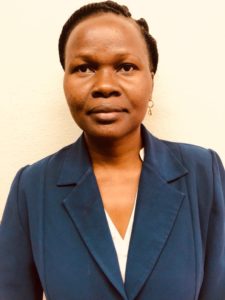
The Center for Business & Economics welcomes Dr. Rosemary Isoto on Monday, December 9 to present her paper entitled, “Agricultural Technology, Bio-fortification and Child Nutrition in Uganda.”
Despite big strides in economic growth, a general decline in poverty levels and an improvement in life expectancy at birth, Uganda continues to lag in terms of reducing child mortality and malnutrition. The immediate causes of malnutrition among children in Uganda and elsewhere continue to be the high disease burden as well as inadequate dietary intake. However, many other factors contribute to nutritional outcomes, among them, the performance of the agricultural sector.
Recent compelling study reviews reveal a number of key pathways that connect improvements in agriculture to improved nutritional outcomes. They include higher agricultural incomes, lower food prices, more nutritious on-farm production and consumption, and synergies between agriculture and nutrition and health arising from women’s empowerment. This study investigates the linkages between modern agricultural technology and child nutrition with a specific focus on production of bio-fortified food crops.

Dr. Rosemary Isoto is an Assistant Professor in the Department of Agribusiness and Natural Resource Economics (DANRE) at Makerere University, Kampala, Uganda.
Before joining DANRE, she was a Post-doctoral fellow at Tufts Friedman School of Nutrition Science and Policy in Boston. She received her PhD from The Ohio State University in the Department of Agricultural, Environmental and Development Economics.
Dr. Isoto’s main research focuses on interlinkages between agriculture and nutritional intake among rural households, financing and marketing matters, issues of financing among youth, provision of extension services in a decentralized setting, gender and productivity, landfills and environmental issues among others.
She has wide knowledge on different models of credit provision in Uganda based on her own research and teaching of agricultural and agribusiness finance. She has also published extensively in journals such as Finance Review, Food Security, and Development Studies among others.
![]() Faculty Seminars are organized to provide a platform for Allegheny and visiting faculty to give presentations based on their research agenda. Students, faculty and staff attend to learn more about cutting edge research in the field of business and economics.
Faculty Seminars are organized to provide a platform for Allegheny and visiting faculty to give presentations based on their research agenda. Students, faculty and staff attend to learn more about cutting edge research in the field of business and economics.